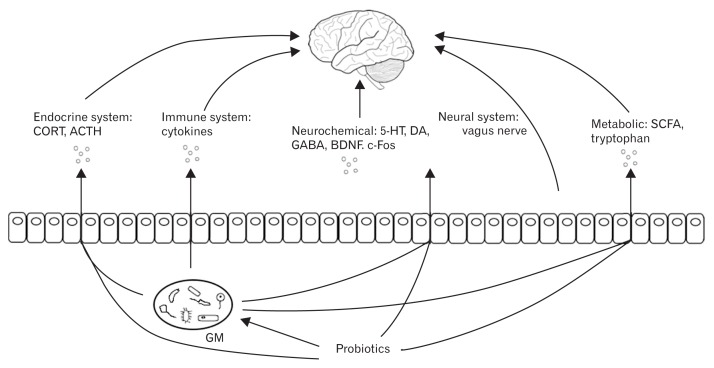Figure 1.
Mechanisms of probiotic effects on the central nervous system. Probiotics influence central nervous system (CNS) function through direct and indirect mechanisms. Probiotics affect the hypothalamic-pituitary-adrenal (HPA) axis, by altering corticosteroid (CORT) and/or adrenocorticotropic hormone (ACTH) levels. The immune system is influenced by limited pro-inflammatory cytokine production and inflammation, and this, in turn, has effects on the CNS. Probiotics can also directly alter CNS biochemistry, such as by affecting brain-derived neurotrophic factor (BDNF), c-Fos, γ-aminobutyric acid (GABA), 5 hydroxytryptamine (5-HT), and dopamine (DA) levels, thus influencing mind and behavior. The vagus and enteric nerves are also involved in this gut-brain interaction and are affected by certain probiotics. Probiotics manipulate the gut microbiota (GM) by increasing microbiota diversity and beneficial bacteria composition. An “improved” GM changes metabolites, such as short-chain fatty acids (SCFAs) and tryptophan, and so improves CNS function indirectly. The GM also interacts with the endocrine, immune, and neural systems.

